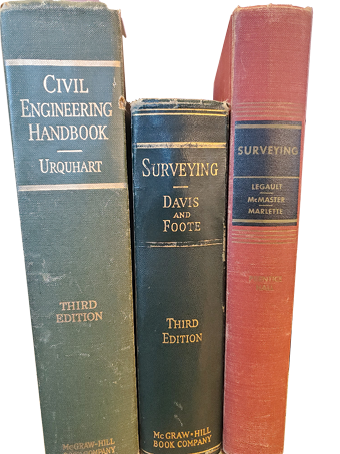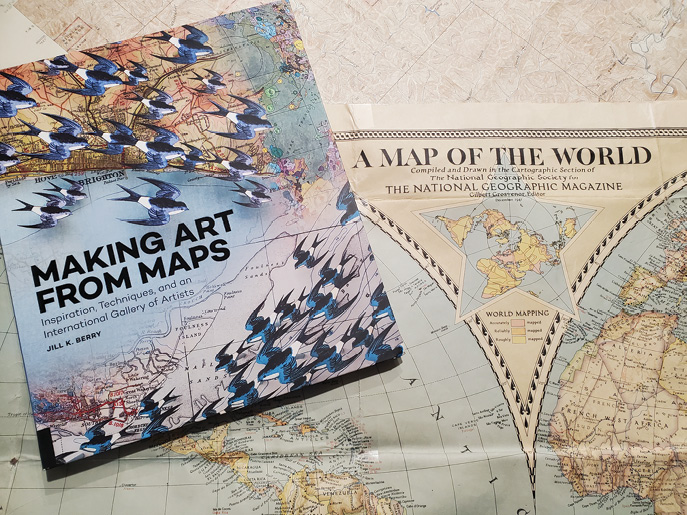Estate Sale
Last month Laurie and I were driving through Carmichael or maybe it was Fair Oaks, on the way into Sacramento when we spotted the telltale pink fluorescent poster pointing the way to an estate sale. We thought we may as well go by, on the off chance of finding a lawn bench or some collectible gee-gaw or another. We turned off the main drag and navigated our way through an old neighborhood following the pink signs until we reached the destination. The signed were laminated, indicating a local company that specialized in putting on estate sales where heirs of the deceased have already plundered what they wanted, and the rest is left for liquidation. Since boomers are passing away at an increasing rate these days, I imagine business is good for companies like this.

The house was a two-story 1950’s subdivision unit looking reasonably well-kept. We entered through the garage, as is usual with these affairs. Nothing of note in the garage, indicating that the house and backyard would probably not hold much of interest either. Good—we would be in and out in ten minutes. Uh oh. We step into the living room. The poor unfortunate deceased was a reader. There are books everywhere. Laurie and I are both suckers for a good book, (although we differ a lot on what constitutes one). That ten minutes is going to become thirty, at least. The stairway has a landing halfway up and there is a built-in bookshelf completely full of beguiling titles. The owner had loved travel and geography, that much is clear. By the time I made it upstairs, I had an armload of books on Spain, Celestial Navigation and World War II. At the top of the stairs, I turned left and hit the two bedrooms at that end of the house… nothing to attract my attention there. I backtracked and headed for the other end of the hallway. One of the two rooms is an office. There is a desk and file cabinet and a huge mess on the floor where other estate sale pickers before us have dug through and tossed aside anything and everything. The closet shelf was stacked high with books. I extracted a 1950 Civil Engineers Handbook, a 1940 Davis and Foote Surveying textbook and a Prentiss Hall 1956 Surveying text by Legault, McMaster and Marlette. I had never seen this one before. I pivoted to the desk. By then, I thought I could smell an HP41C or other such gem, and I meant to discover it.

The desk was covered with a thick stack of old quad maps covering parts of Alaska, Washington, Oregon, California, and Nevada. Some were stamped with a company name, and it matched that of the signature written inside each of the textbooks. I concluded that this fellow had been a professional with a business, a long time ago, by the looks of things. Alas, no calculator, but there were triangles, scales, protractors, a compass, all old and all in good condition. I haven’t needed to draft anything by hand in years, but I know I needed to gather this stuff up. But first, the maps—I could not locate a rubber band but there was yarn in one of the other bedrooms, so I retrieved some. Laurie was getting impatient. I rolled up the whole stack of maps and tied it off with the yarn, gathered up my book stack, and we headed downstairs to pay. The whole shebang cost me twenty bucks.
Okay, by now you are likely thinking, “this is kind of morbid, what gives?”
I have a similar horde of Surveying-related deteriorata, as you can well imagine. My own books and tools, my mentors’ old books and tools, old calculators, old instruments, old books, old drafting gear. I hesitate to say it’s a compulsion, but maybe… Anyhow, it all means something to me but probably not too much to my family and someday, someone will be picking through my junk just like I did at that estate sale. I know that this old engineer’s ephemera went unrecognized and unvalued until I stepped into that house and for a variety of reasons I don’t care to explore too deeply, that makes me sad. So, I’ll spend a buck (or twenty) and take it home for a while, try to find someone who thinks adding an old book to their bookshelf is cool, and in a way, I make a spiritual connection, if only in my own mind, to the deceased. He was, after all, a member of the surveying community and that is kind of sacred, at least to me.
One more thing—hidden among the quad maps, which I did not unroll for a couple of weeks, was a 1941 National Geographic Map of the World. Wow, such a beautiful map! And so many countries whose identities have changed in the bloody years since. Belgian Congo, French Equatorial Africa, Italian Somaliland, Netherland Indies, French Indochina. Those colonial Europeans were certainly possessive. Who the hell did they think they were, anyway? Yugoslavia, Trans-Jordan, Burma, Northern Rhodesia, Manchukuo—how many of those places were troubled then and are troubled still? I have a craft book, that I got at another estate sale, of course, that illustrates how to make art projects from old maps. I can’t bring myself to do it.
Dancing in the Moonlight
You probably saw this one coming. It was bound to come out of me sooner or later—my take on Moonlighting. I won’t be winning any friends with this one. So put on your chaps and saddle up, this is going to be a rough ride.
As professional surveyors, we have achieved, through education and experience, a highly respected status. We maintain superior standards and we care about every aspect of our job. We are held accountable for our actions, our decisions and our very demeanor. We have a code of ethics and a commitment to continuous improvement. Don’t believe any of the foregoing? Google ‘professional’ and see what comes up.
If we are employed by a firm, a utility company or an agency, whether local or state, we are a representative of that firm, company or agency and it is expected that we are using our professional status and skills to maintain the good standing of those whom we represent. Is that not a full-time commitment? How does one function as a professional land surveyor all day, five days a week for an employer and still have time to take on side work? Am I the only one who stews over extensive research and difficult boundary determinations after the workday is done? How could I fit that in if I were engaging in side work?
Where am I going with this? Put bluntly, I don’t think moonlighters are giving their employers 100% of their attention or time, (especially if they are ‘working remotely’), and I assert that this is unprofessional. Does it make me unpopular for saying this out loud? Probably, but I can live with that. So, Moonlighter, let me ask some simple questions:
|
Unless you can answer yes to each one of these questions, then how can you say you are meeting the high standards of the profession? And if you can answer yes to all these questions yet you have a ‘first forty hours’ commitment to an employer, I have to ask why you don’t just quit and run your business full time? And by the way, when you need to visit a local agency or take a phone call on behalf of your side-work client’s project, do you take time off from your primary employer, or do you just kind of fit it in?
I confess to being curious whether anyone out there wants to take a stab at arguing in favor of moonlighting. By the way, do you see a lot of doctors and lawyers moonlighting?